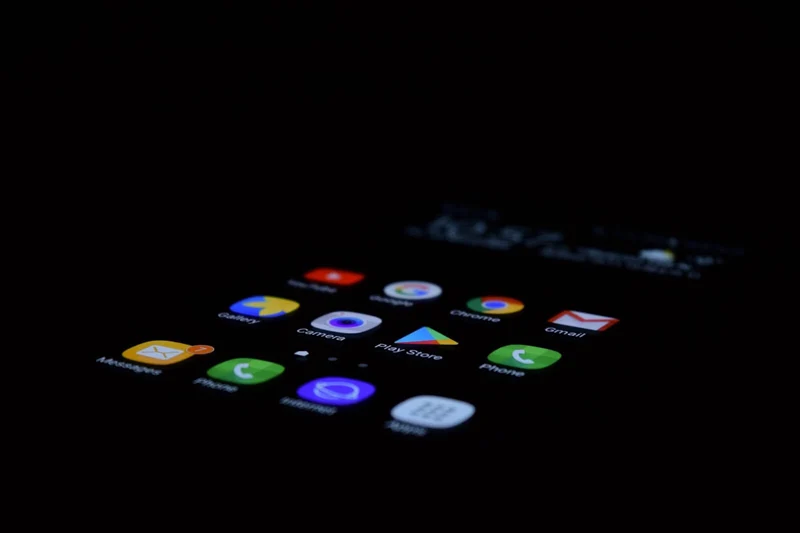Play Store or App Store: Which is Better for Launching an App?
In today's digital world, mobile apps have become an essential tool for businesses to reach their customers. You may have poured your heart and soul into creating an app that you believe will change the game in its respective category. However, you may be facing a daunting decision: where should you launch it?
With the two behemoths of the mobile app industry – Google Play Store and Apple's App Store – vying for your attention, it can be tough to decide which one is the best fit for your app's launch. So, which one should you choose? In this blog, we'll explore the differences between the two stores and help you make an informed decision on which platform to launch your app on. Get ready to take notes!
Pros and Cons of Launching on the Google Play Store
The Play Store is the primary app distribution platform for Android devices. It offers a vast collection of apps that are available for download to anyone with an Android device. Here are the pros and cons of launching an app on the Play Store.

Pros
- Large Market Share: In quarter four of 2022, Android remained the dominant mobile operating system worldwide with an almost 71.8% market share, while iOS held approximately 27.6% This means that launching an app on the Google Play Store can help you reach a wider audience.
- More Flexibility: Unlike the App Store, the Play Store is more flexible when it comes to mobile app development. You have more freedom to customize your apps, experiment with new features, and integrate third-party services without too many restrictions.
- Google Play Console: Google offers a suite of powerful tools to help android app developers manage and optimize their apps on the Play Store. The Google Play Console provides developers with detailed analytics, user feedback, and performance data, which can help you improve your apps and increase user engagement.
- Lower Development Costs: Developing an Android app is generally less expensive than developing an iOS app. This is because Android apps can be developed on a wider range of devices, making it easier for you to test your app on different devices without investing in expensive hardware.
Cons
- Fragmentation: The Android ecosystem is highly fragmented, with a wide range of devices and operating systems available. This makes it more challenging for you to optimize your apps for all devices and ensure a consistent user experience.
- Security Risks: The open nature of the Android studio also makes it more vulnerable to security risks. With so many devices and operating systems to support, you may find it challenging to keep up with security updates and vulnerabilities.
- App Discovery: The Google Play Store has a vast collection of apps, making it difficult for you to highlight your app. It's crucial to invest in marketing and promotion to increase app visibility and downloads.
Pros and Cons of Launching on the App Store
The App Store is Apple's official app distribution platform for iOS devices. It offers a curated collection of apps that are available for download to anyone with an iOS device. Here are the pros and cons of launching an app on the App Store:
Pros
- Consistent User Experience: Because iOS devices are limited in number and have a more controlled ecosystem, your ios developers can ensure a more consistent user experience across different devices and operating systems.
- Easier App Discovery: The App Store has a curated collection of apps, making it easier for you to get your app noticed. The App Store algorithm also takes into account user reviews, ratings, and downloads, which can help you increase your app visibility.
- Higher Revenue: iOS users are more likely to spend money on apps than Android users. This means that you can potentially generate more revenue from your app on the App Store.
Cons

- Limited Flexibility: Unlike the Google Play Store, the App Store is less flexible when it comes to app development. You have to follow strict guidelines and rules, which can limit your ability to experiment with new features and customizations.
- Higher Development Costs: Developing an iOS app is generally more expensive than developing an Android app. This is because iOS apps require a more specific set of skills and expertise, as well as a more controlled development environment.
- App Approval Process: The App Store has a strict app approval process that can take several days or even weeks. This can delay the launch of an app and make it more challenging for you to iterate and update your app quickly.
Android or iOS: Which Platform Should Businesses Choose?
In Q3 2022, Google Play had the largest number of available apps with 3.55 million, while the Apple App Store had around 1.64 million apps for iOS users.
In terms of gross app revenue, Google Play generated around $10.4 billion globally in Q3 2022, which was a decline from the previous quarter. On the other hand, the Apple App Store earned approximately $21.2 billion in consumer spending from in-app purchases, subscriptions, and premium apps in the most recent quarter, representing a decline of about 3% from the previous quarter.
When it comes to choosing between the Play Store and App Store, there's no clear winner. Both platforms have their pros and cons, and you should choose the one that best aligns with your goals and needs. Here are a few factors to consider:
- Target Audience: The platform chosen should align with the target audience. If the target audience is primarily Android users, launching the app on the Google Play Store may be the better option. On the other hand, if the target audience is primarily iOS users, launching the app on the App Store may be the better option.
- Development Costs: The costs associated with developing an app on a specific platform should be taken into account. Developing an app on the Play Store is generally less expensive than developing an app on the App Store. You should consider your budget and development resources before making a decision.
- App Functionality: Certain features and integrations may be more suitable for one platform than the other. For example, if the app relies heavily on Google Maps, then launching it on the Play Store may be the best option.
- Limited Flexibility: Unlike the Google Play Store, the App Store is less flexible when it comes to app development. Your developers have to follow strict guidelines and rules, which can limit their ability to experiment with new features and customizations.
- App Approval Process: The App Store has a strict app approval process that can take several days or even weeks. This can delay the launch of an app and make it more challenging for you to iterate and update the app quickly. On the other hand, the Play Store has a more streamlined approval process, allowing for faster updates and iterations.
- App Marketing: You must invest in marketing and promotion to increase your app visibility on both platforms. However, the App Store has a more controlled environment and algorithm, making it easier for you to highlight your app in the crowd.
In conclusion, launching an app on the Play Store or App Store has its pros and cons. You should carefully consider your target audience, development costs, app functionality, and marketing strategy before making a decision. Ultimately, the platform that aligns best with the business's goals and needs is the one to choose.
FAQs:
Q1. Which is Better Play Store or App Store?
Google Play Store has a larger market share in terms of app downloads and is more open for developers, while Apple App Store generates more revenue for app developers and has stricter app submission guidelines and a more rigorous app review process.
Ultimately, the choice between the two app stores depends on your specific needs and goals as a developer.
Q2. Which has more apps App Store or Play Store?
In Q3 2022, Google Play had the largest number of available apps with 3.55 million, while the Apple App Store had around 1.64 million apps for iOS users.
However, it's important to note that having more apps doesn't necessarily mean that one app store is better than the other. Quality and user engagement are also important factors to consider when launching an app.
Q3. What is the app store called on iPhone?
The app store on iPhone is called the "App Store." It is an app pre-installed on all iPhones and can be used to search for, download, and manage apps on the device.
